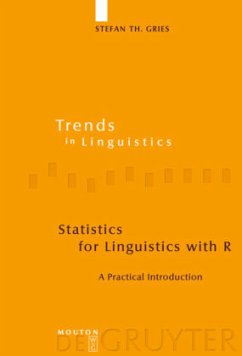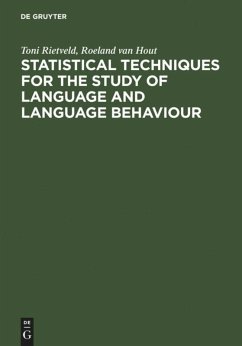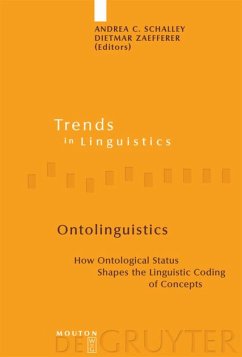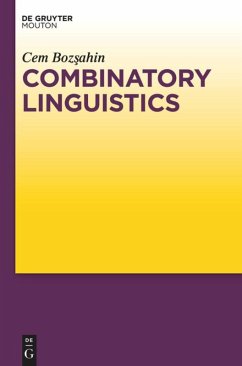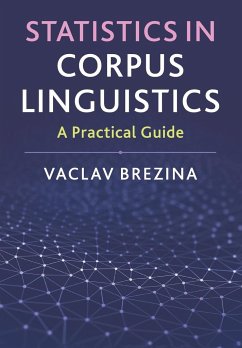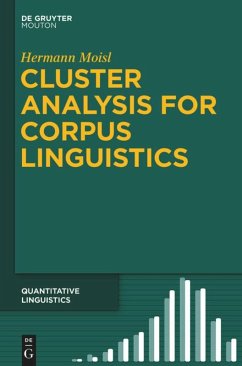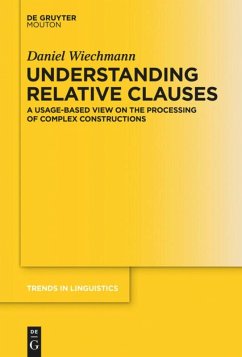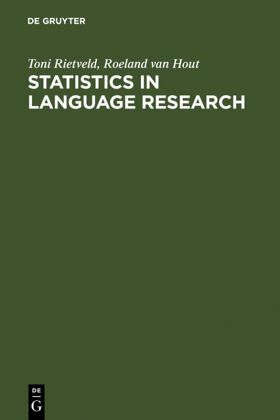
Statistics in Language Research
Analysis of Variance

PAYBACK Punkte
45 °P sammeln!
Statistics in Language Research gives a non-technical but more or less complete treatment of Analysis of Variance (ANOVA) for language researchers. ANOVA is the most frequently used technique when handling the outcomes of research designs with more than two treatments or groups. This technique is used in all parts of linguistics which deal with observations obtained in survey studies and in (quasi-)experimental research, like applied linguistics, psycholinguistics, sociolinguistics, language and speech pathology and phonetics. Most statistical textbooks in the social sciences take examples typ...
Statistics in Language Research gives a non-technical but more or less complete treatment of Analysis of Variance (ANOVA) for language researchers. ANOVA is the most frequently used technique when handling the outcomes of research designs with more than two treatments or groups. This technique is used in all parts of linguistics which deal with observations obtained in survey studies and in (quasi-)experimental research, like applied linguistics, psycholinguistics, sociolinguistics, language and speech pathology and phonetics. Most statistical textbooks in the social sciences take examples typical of their own field and, in addition, omit subjects which are particularly relevant for language researchers, like power analysis, quasi F, F1, F2 and minF'.
This book offers a thorough introduction to the basic principles of analysis of variance, based on examples taken from language research, and goes beyond the conventional topics treated in introductory textbooks, as it covers topics like 'violations of assumptions', 'missing data', 'problems in repeated measures designs', 'alternatives to analysis of variance' (such as randomization tests and multilevel analysis). Each chapter consists of four sections: treatment of the subject under discussion, a summary of relevant terms and concepts, a section devoted to reporting statistics, and finally an exercise section. After the first introductory chapter, in which fundamental concepts like 'variables', 'cases' and SPSS data formats are presented, the book continues with two 'refreshment' chapters, in which the principles of statistical testing are revised, focusing on the well-known t test. These chapters also deal with the essential, but often neglected concepts of 'statistical power' and 'sample size'. In every chapter examples of SPSS input and output are given.
This book offers a thorough introduction to the basic principles of analysis of variance, based on examples taken from language research, and goes beyond the conventional topics treated in introductory textbooks, as it covers topics like 'violations of assumptions', 'missing data', 'problems in repeated measures designs', 'alternatives to analysis of variance' (such as randomization tests and multilevel analysis). Each chapter consists of four sections: treatment of the subject under discussion, a summary of relevant terms and concepts, a section devoted to reporting statistics, and finally an exercise section. After the first introductory chapter, in which fundamental concepts like 'variables', 'cases' and SPSS data formats are presented, the book continues with two 'refreshment' chapters, in which the principles of statistical testing are revised, focusing on the well-known t test. These chapters also deal with the essential, but often neglected concepts of 'statistical power' and 'sample size'. In every chapter examples of SPSS input and output are given.





